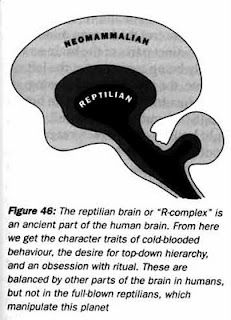An earlier conversation urging a preference for quality
ahead of quantity probably aroused puzzlement among some.
The drive for quality in modern businesses is overt and
almost without fail rewarded monetarily or in a way that enhances the
self-esteem of an individual or a group of people. Business today sees quality and the subsequent recognition
and reward for its achievement largely through the prism of customer
satisfaction.
Business today sees quality and the subsequent recognition
and reward for its achievement largely through the prism of customer
satisfaction.That satisfaction, according to the hierarchy of most businesses, certainly the successful ones, is unquestionably about increased sales; about the growth of the company and so more throughput.
Contemporary economics lives within a language code that is confusing to the un-initiated, even to many who speak the language, but stripped of its bewildering fineries, the more throughput a company has, the better the end result, assuming its governance is in order.
In this instance, quality is simply about ensuring the maintenance of an ever increasing throughput, which in a world without restraints is honourable and so worthy of our applause.
However, our world is in reality quite different from the seemingly infinite world in which our ideas of growth and business were conceived.
Beyond the remote original thinker, whose sanity was questioned as was their allegiance to God or the gods, the piecing together, since the Industrial Revolution, of the mercantile world happened largely in ignorance that nature was calling the shots and not, as it was then believed, and still is by many, some mythical supernatural being.
Quality in its modern meaning is about whether your new washing machine lasts two or twenty years or whether or not your car will perform as intended for its expected ten years.
Quality time also means spending an uninterrupted hours with your kids, rather than being divided between them and some portable electronic device or simply being distracted by thoughts that you should really have your shoulder to the wheel and not “wasting” time with your family.
The idea of quality has been so distorted that its real meaning has been disenfranchised and the essence of it being hijacked by our modern industrial world to ensure riches and comfort for a few and servitude for everyone else.
Quality, in its deepest sense and if we are to unravel its mysteries, demands a whole societal re-focus that puts the wellbeing and contentment of people clearly ahead of the manufacture and consumption of “stuff”.
Work is clearly essential to our wellbeing, but it needs to be work about survival and not work building and making stuff that simply depletes the world’s resources and has little to do with, if anything, enriching personal psychological value.
Quality is something that takes time, it is personal and its achievement is hugely satisfying.

























